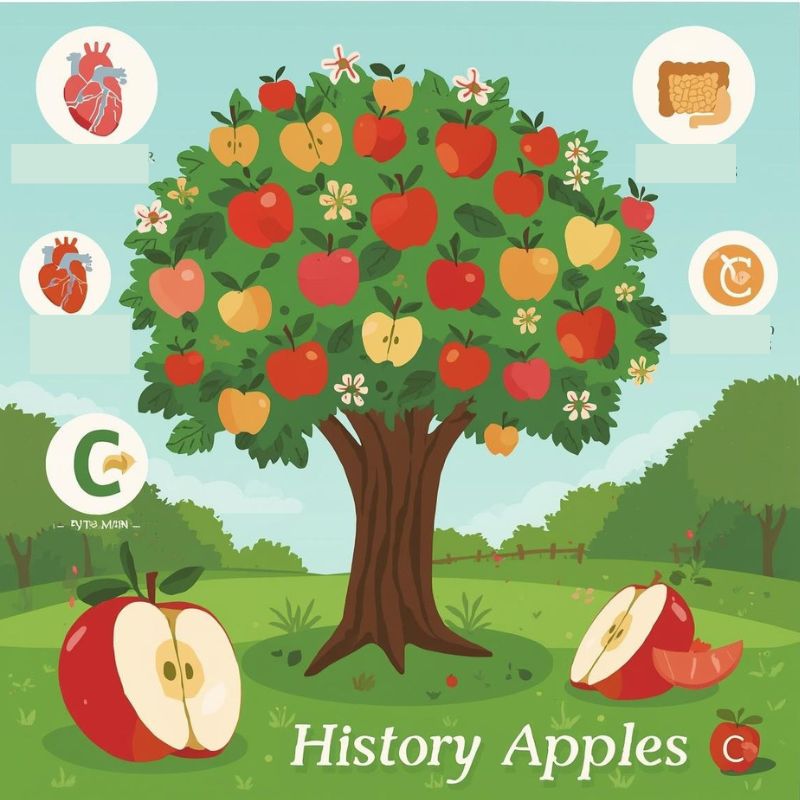Apples have been loved for centuries, but when did they get the title of “superfood”? In this article, we’ll dive into the history, rise in popularity, health claims, and scientific evidence that put apples on the global superfood map.
The Rise of Apples in the Superfood Spotlight
The superfood trend exploded in the early 21st century, with foods like blueberries, kale, and quinoa dominating health discussions. Apples, despite their long-standing popularity, gained renewed attention for their high fiber content, antioxidants like quercetin, and low-calorie profile. Today, they are a staple recommendation in wellness diets and plant-based eating.
Health Claims Meet Modern Hype
Why did apples suddenly become a superfood? Social media influencers, nutritionists, and wellness brands started promoting apples as a weight-loss-friendly, heart-healthy snack. Phrases like “an apple a day keeps the doctor away” gained fresh momentum with new scientific studies backing some of these claims.
What Is the History of Apples and Their Benefits?

Apples have ancient roots, dating back to Central Asia over 4,000 years ago. They spread across Europe through trade routes and eventually became a household fruit worldwide. Historically, apples were valued for:
- Natural sweetness as an energy source
- Medicinal uses in traditional remedies
- Easy storage and transport
From Ancient Medicine to Global Trade
In traditional Chinese medicine and Ayurveda, apples were believed to balance digestion and improve immunity. Their global popularity soared during the colonial era when trade routes made them accessible worldwide. However, the superfood label came much later, aligning with modern health marketing trends.
Traditional Beliefs vs. Scientific Validation
While traditional beliefs celebrated apples for health, modern science confirms that they:
✔ Contain dietary fiber for digestion
✔ Are rich in polyphenols and antioxidants
✔ Support heart health by reducing cholesterol levels
✔ Help manage blood sugar for diabetics
Does Apple Have Any Proven Health Benefits?
Yes, studies show apples may:
- Lower risk of heart disease
- Improve gut health due to pectin
- Support weight management
- Provide natural energy without added sugar
What the Research Really Shows
Recent studies indicate that apples aren’t a miracle cure but are nutrient-dense, low-calorie, and beneficial for long-term health when combined with a balanced diet.
Why Are Apples Considered a Superfood Today?
Modern diets love apples because they are:
- Affordable and widely available
- Packed with antioxidants and vitamins
- Linked to better metabolic health
Different Types of Apples and Their Benefits
- Granny Smith: Best for weight loss (low sugar)
- Honeycrisp: High in vitamin C
- Fuji: Sweet and antioxidant-rich
How to Include Apples in Your Diet
- Fresh snacks
- Apple cider vinegar for digestion
- Smoothies and salads
FAQs
1. When did apples become recognized as a superfood?
Apples gained the “superfood” title in the early 2000s during the global health and wellness trend.
2. Are apples really a superfood?
Yes, because they provide fiber, antioxidants, and vitamins with very few calories.
3. What is the healthiest type of apple?
Granny Smith apples are often considered the healthiest due to their low sugar and high fiber content.
4. Do apples help with weight loss?
Yes, apples are filling, low in calories, and high in fiber, making them great for weight control.
5. Can eating apples daily prevent diseases?
Apples may lower the risk of heart disease and support gut health, but they are not a cure-all.
✅ Final Thoughts
Apples have evolved from a simple fruit to a global superfood thanks to their scientifically backed health benefits, historical importance, and versatility in diets. While they’re not magic, incorporating apples into your meals can support overall wellness and a healthy lifestyle.

